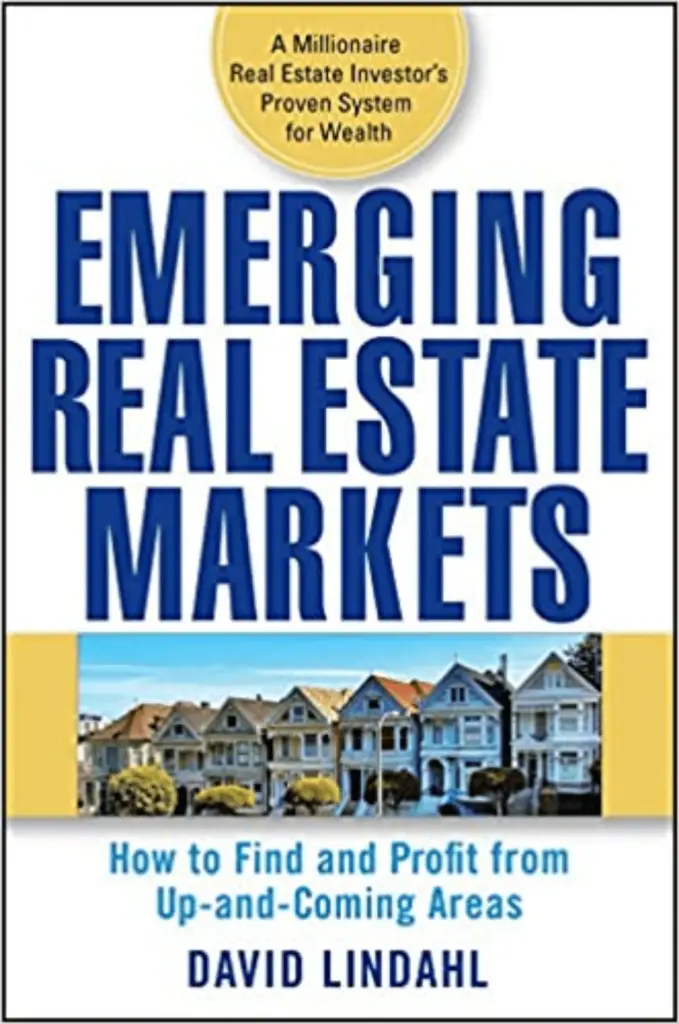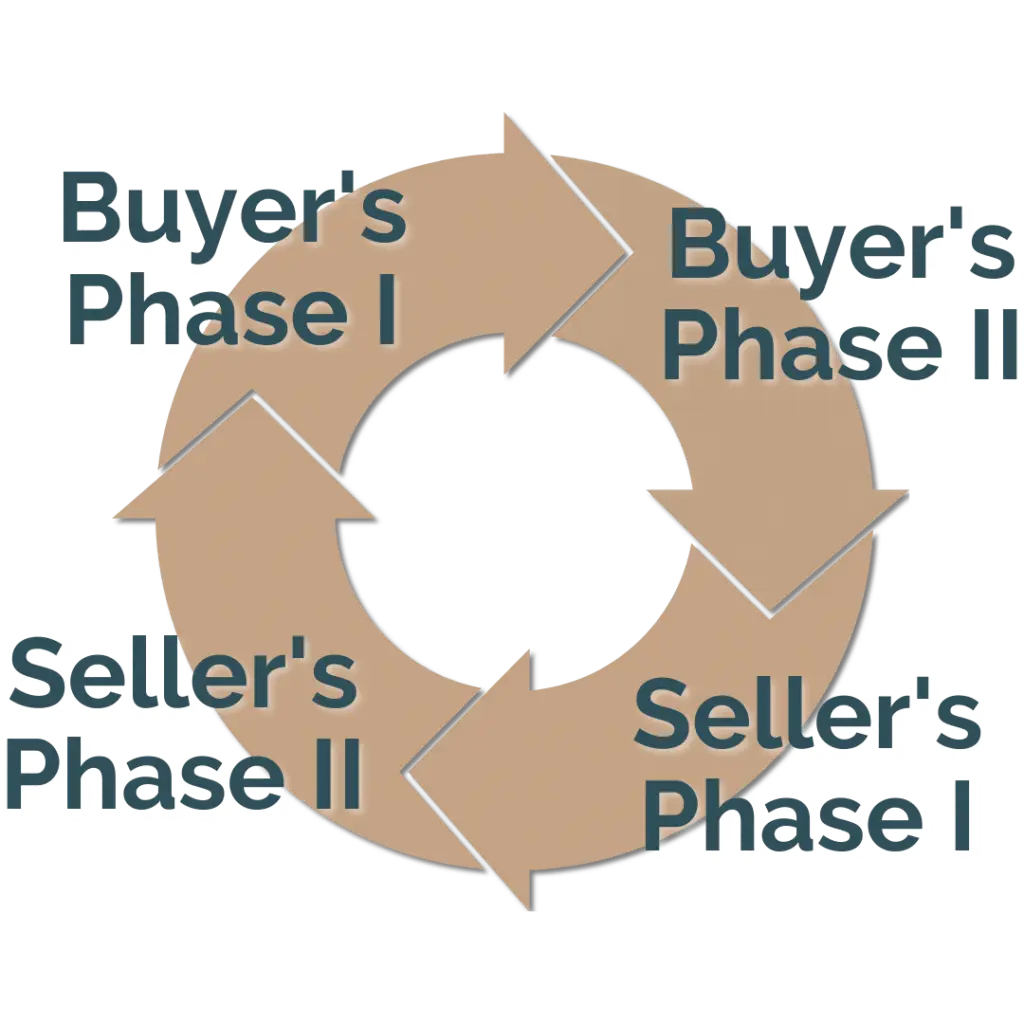Why this post? Why now?
I’ve recently started re-reading the book Emerging Real Estate Markets by David Lindahl.
Why?
To me, this book is filled with gold nuggets on real estate investing.
One of the main take-aways I have from the book is the collection of indicators one can use to analyze a real estate market.
The only downside is that the book is written for the US and so some things have to be adjusted for different markets.
What I’d like to do is take the information and potential indicators that Lindahl uses and try to find the sources for Canadian markets. I won’t outline the full research in this blog post as my aim is to document what I’ve learned so far.

First off… what is a market cycle?
Everything is cyclical when it comes to humans.
Humans over do things largely because of emotions. Mixed with the emotion we also are prone to herd mentality.
When you mix those two together, you get a cyclical pattern of “too much” and “not enough”.
In financial markets, this can be seen as greed and fear. Investors become to greedy, the market corrects causing fear. From there the market corrects again and causes greed.
These types of cycles have happened since the dawn of man.
Why you should care about market cycles as a real estate investor
Be “fearful when others are greedy, and greedy when others are fearful.” [1] Warren Buffet.
Many investors say you cannot time the market. Maybe that’s true, but I think that at the very minimum you should pay attention to the risks of each market cycle.
Since everything has a cycle and crashes do happen, you need to pay attention to the risks of a crash.
For example, in the mid 2010’s, Alberta went through a significant market crash. The reason? Their job market was tied to oil. As the oil market softened, so did Alberta’s real estate market.
This cause real estate prices to drop – in some cases the prices dropped below the mortgages used to purchase them.
Could this have been something an investor avoided? It’s hard to say as hind sight is 20/20. One thing we can learn from this is that investing in a location with a single main job market can present more cyclical risk. And if there is high cyclical risk, then it also makes sense to understand cycles.
What are the 4 Market Cycles?

What are the indicators for each Phase in the Real Estate Market Cycle?
What good is theory if you can’t act on it?
Real estate investors are action takers and the goal of this post is to help separate the theory and practice of real estate research.
In the book, Lindahl talks mainly about these variables:
- Property supply
- Time on the market for real estate sales
- Prices of property and rents
- Job growth and job supply
- Bank foreclosures
- New construction
- Market sentiment
Here are the four cycles and the indicators that Lindahl suggests you can use to read the market:
Indicators for Buyer’s Phase I
- There is an oversupply of properties
- Time on the market sharply increases
- Prices and rents for investment properties fall
- Job growth has slowed or even become negative
- Bank foreclosures are at their highest
Indicators for Buyer’s Phase II
- Bank foreclosures heat up and the number of foreclosures on the market reduces significantly
- Out of town investors increases and even the locals start to invest
- Rents are just starting to increase along with prices of real estate
- Still little to no new construction yet. Builders are still on the sidelines after being wiped out.
- The main job market is growing and start to see secondary job markets growing along with it
- Labour competition increases which leads to increases in salaries. The increase in salaries leads to the average house hold size to decrease
Indicators for Seller’s Phase I
- Builders come back to the market as the numbers make financial sense again
- Local investors think that the good times will be permanent
- Investment property supply decreases
- Properties sell very fast leading to time on the market to decrease
- Bidding wars start and lead to sale prices going over asking prices
- Speculation and development in raw land increase
- Properties in bad areas are being bought and flipped for profit
- Contractors are difficult to find because they have all become builders
- Speculators and investors start to buy properties based on their appreciation instead of cash flow. Sometimes, they’ll even take negative cash flow for the gamble of higher prices.
Indicators for Seller’s Phase II
- Properties will start to stay on the market for longer and the number of properties on the market beings to increase
- Multiple offers disappear from the market
- No more bidding wars
- Prices likely to still be inflated
- Land is still being purchase for speculation and the amount of construction in the pipeline becomes excessive
- Business and job growth slow
- Some sellers will lower their prices to move quickly
- There will be overbuilding – see number of building permits
What’s next?
Now that we know what we should be looking for, the next step is to find these indicators.
Lindahl does comment that a lot of this information needs to be manually collected from cities. This means talking to people at municipalities, looking on their websites, trying to find their economic plans, etc.